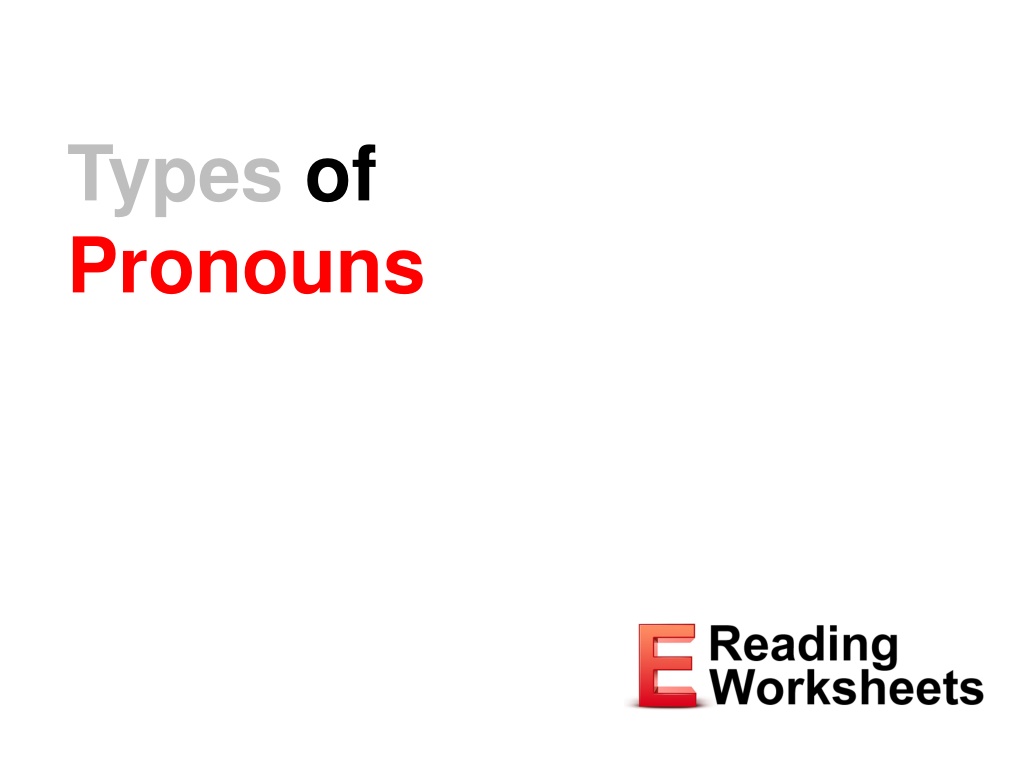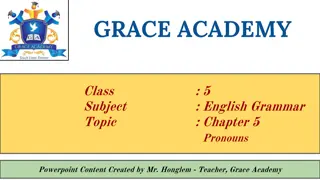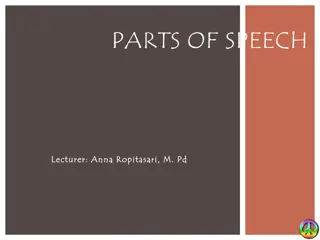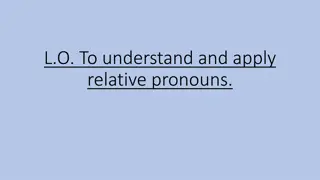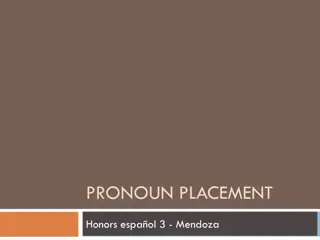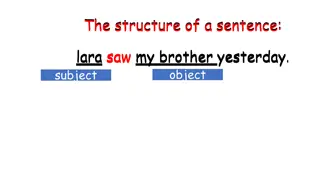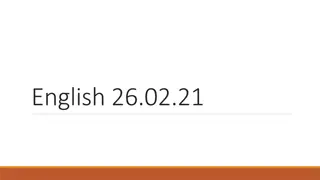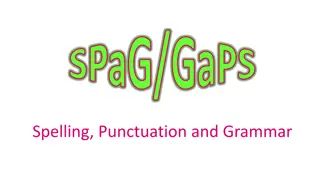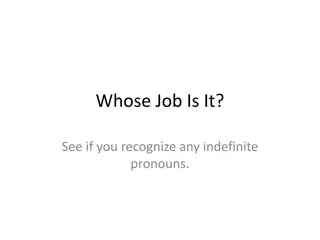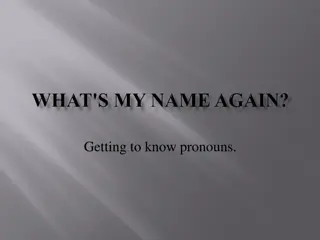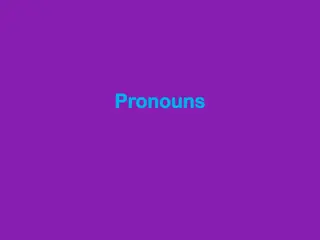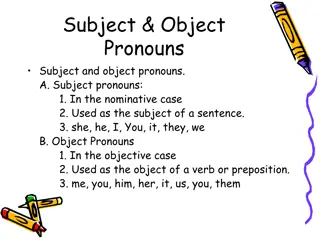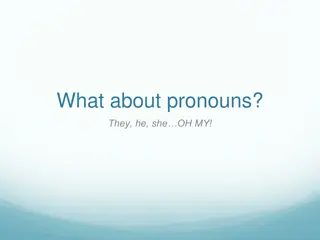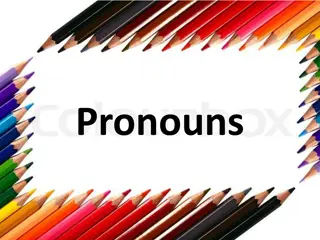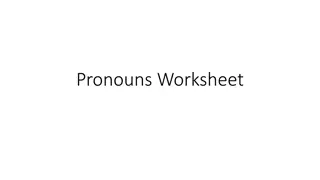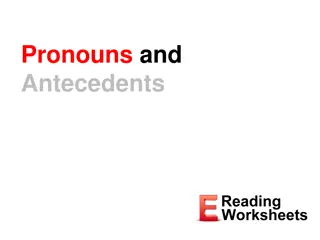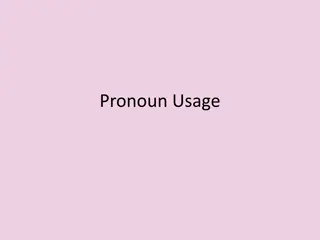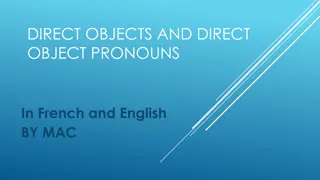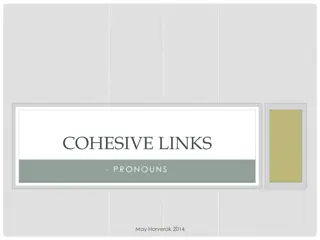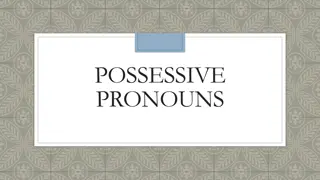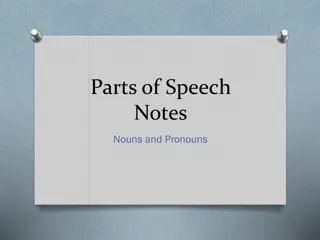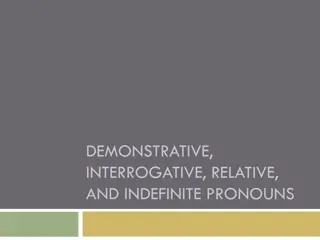Understanding Different Types of Pronouns
Learn about the seven types of pronouns - Personal, Possessive, Reflexive, Relative, Demonstrative, Indefinite, Interrogative. Personal pronouns replace nouns, possessive pronouns replace possessive nouns, reflexive pronouns refer back to the subject, relative pronouns introduce relative clauses, and demonstrative pronouns replace things. Each type has specific examples and usage guidelines to help you use them correctly in sentences.
Download Presentation

Please find below an Image/Link to download the presentation.
The content on the website is provided AS IS for your information and personal use only. It may not be sold, licensed, or shared on other websites without obtaining consent from the author. Download presentation by click this link. If you encounter any issues during the download, it is possible that the publisher has removed the file from their server.
E N D
Presentation Transcript
Types of Pronouns
Seven Types of Pronouns Personal Possessive Reflexive Relative Demonstrative Indefinite Interrogative
Personal Pronouns Take the place of nouns The Personal Pronouns: I, me, us, we, you, he, him, she, her, it, them, they Example Colonel Mustard was invited to the party at Mrs. Witherspoon s mansion, but he didn t want to go alone.
Possessive Pronouns Take the place of possessive nouns The Possessive Pronouns: My, mine, our, ours, your, yours, his, her, hers, their, theirs, its Example Mr. Whiskers was disappointed with his dinner.
Reflexive Pronouns Refer or reflect back to the subject The Reflexive Pronouns: Myself, ourselves, yourself, yourselves, himself, herself, themselves, itself Example Andre just wanted to be by himself.
Use Reflexive Pronouns Carefully They can only be used after a name or pronoun to which they refer. Don t My children wanted to go to Happyland with myself. Do My children wanted to go to Happyland with me, but I wanted to go by myself.
Relative Pronouns Introduce relative clauses The Relative Pronouns: That, who, whom, whose, which, whoever, whomever, whichever Example The pirate captain, who had never seen the inside of a schoolroom, struggled to read the ransom note.
Relative Clauses Begin with a relative pronoun and give more information about a noun. Examples Willard, who had just learned of the sun s power, used a magnifying glass to terrorize ants. Ants that are exposed to magnified sunlight tend to combust.
Demonstrative Pronouns Take the place of things The Demonstrative Pronouns: This, that, these, those Example This is my favorite book about unicorns, said Patrick.
Indefinite Pronouns Take the place of things The Indefinite Pronouns: Another, all, any, anybody, anyone, anything, both, each, either, enough, everybody, everyone, everything, few, fewer, less, little, many, more, most, much, neither, none, nothing, one, other, others, several, some, somebody, someone, something, such Example Office Ramirez heard something moving behind the dumpster.
Interrogative Pronouns Take the place of things The Interrogative Pronouns: Who, whom, what, which, whose Example What s inside of that treasure chest?
Examples of Pronouns The wolf covered himself in sheepskin and attempted to sneak into the shepherd's flock. Which word is a pronoun in the above sentence? What type of pronoun is it? himself / reflexive
Examples of Pronouns Jean Paul is going to paint something that will revolutionize the art world. Which word is a pronoun in the above sentence? What type of pronoun is it? something / indefinite
Examples of Pronouns Trolleisha wore a new dead animal skin so that Gorlock would notice her. Which word is a pronoun in the above sentence? What type of pronoun is it? her / personal
Review Personal, possessive, and reflexive pronouns usually fill in for people s names. Relative pronouns introduce relative clauses, which give more information about nouns. Indefinite pronouns fill in for unknown or unspecified people, places, things.
